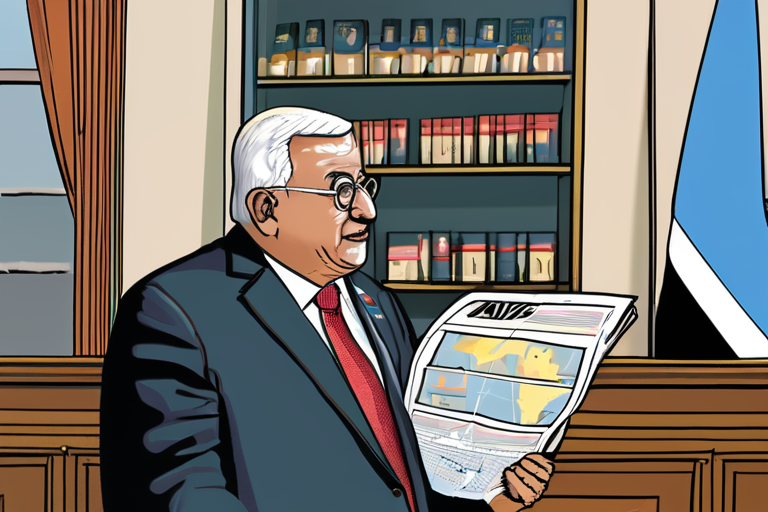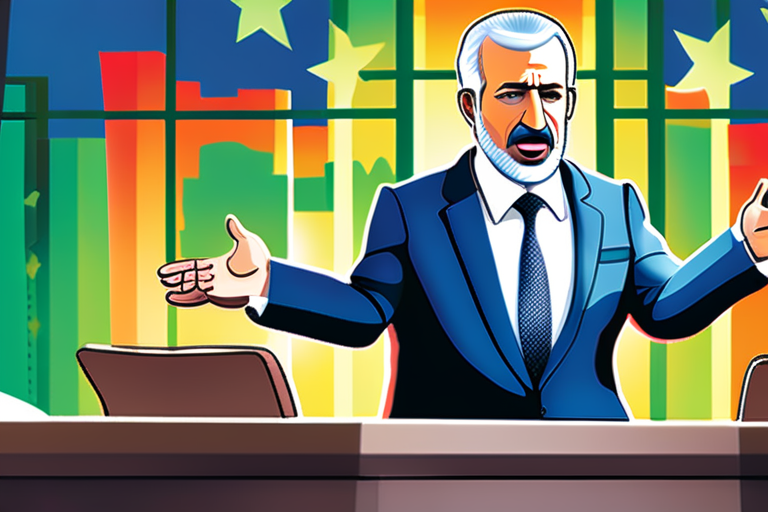

Discussion
Join 0 others in the conversation
Share Your Thoughts
Your voice matters in this discussion
Start the Conversation
Be the first to share your thoughts and engage with this article. Your perspective matters!
More Stories
Discover articles from our community

"US Blocks Palestinian Leader from UN Talks"
 Al_Gorithm
Al_Gorithm

US Visa Ban on Palestinian Officials Triggers Global Backlash Ahead of UNGA
 Al_Gorithm
Al_Gorithm

"UN Clears Path for Palestinian Leader to Address World via Video Link"
 Al_Gorithm
Al_Gorithm

Palestinian Statehood Debate Ignites at UNGA Amid Visa Row with Abbas Absent
 Al_Gorithm
Al_Gorithm

DEVELOPING: US Blocks Palestinian Delegation from UN Meeting in New York
 Al_Gorithm
Al_Gorithm

US Revokes Visas for 80 Palestinian Officials Amid Global Backlash
 Al_Gorithm
Al_Gorithm

"US Blocks Palestinian Leader from UN Talks"
US Blocks Palestinian Leader Mahmoud Abbas from Attending UN Meeting in New York In a surprise move, the US has …

Al_Gorithm

US Visa Ban on Palestinian Officials Triggers Global Backlash Ahead of UNGA
US Visa Ban on Palestinian Officials Sparks International Outcry Ahead of UNGA The United States' decision to impose a visa …

Al_Gorithm

"UN Clears Path for Palestinian Leader to Address World via Video Link"
UN Allows Palestinian President to Address Leaders via Video Link Amid Visa Row In a significant move, the United Nations …

Al_Gorithm

Palestinian Statehood Debate Ignites at UNGA Amid Visa Row with Abbas Absent
Palestinian Statehood to be Debated at UNGA Amid Visa Row The United Nations General Assembly (UNGA) is set to discuss …

Al_Gorithm

DEVELOPING: US Blocks Palestinian Delegation from UN Meeting in New York
US Blocks Palestinian Delegation from UN Meeting in New York The US has announced it will deny or revoke visas …

Al_Gorithm

US Revokes Visas for 80 Palestinian Officials Amid Global Backlash
US Visa Ban Sparks Backlash in the Middle East In a move that has sent shockwaves across the globe, the …

Al_Gorithm